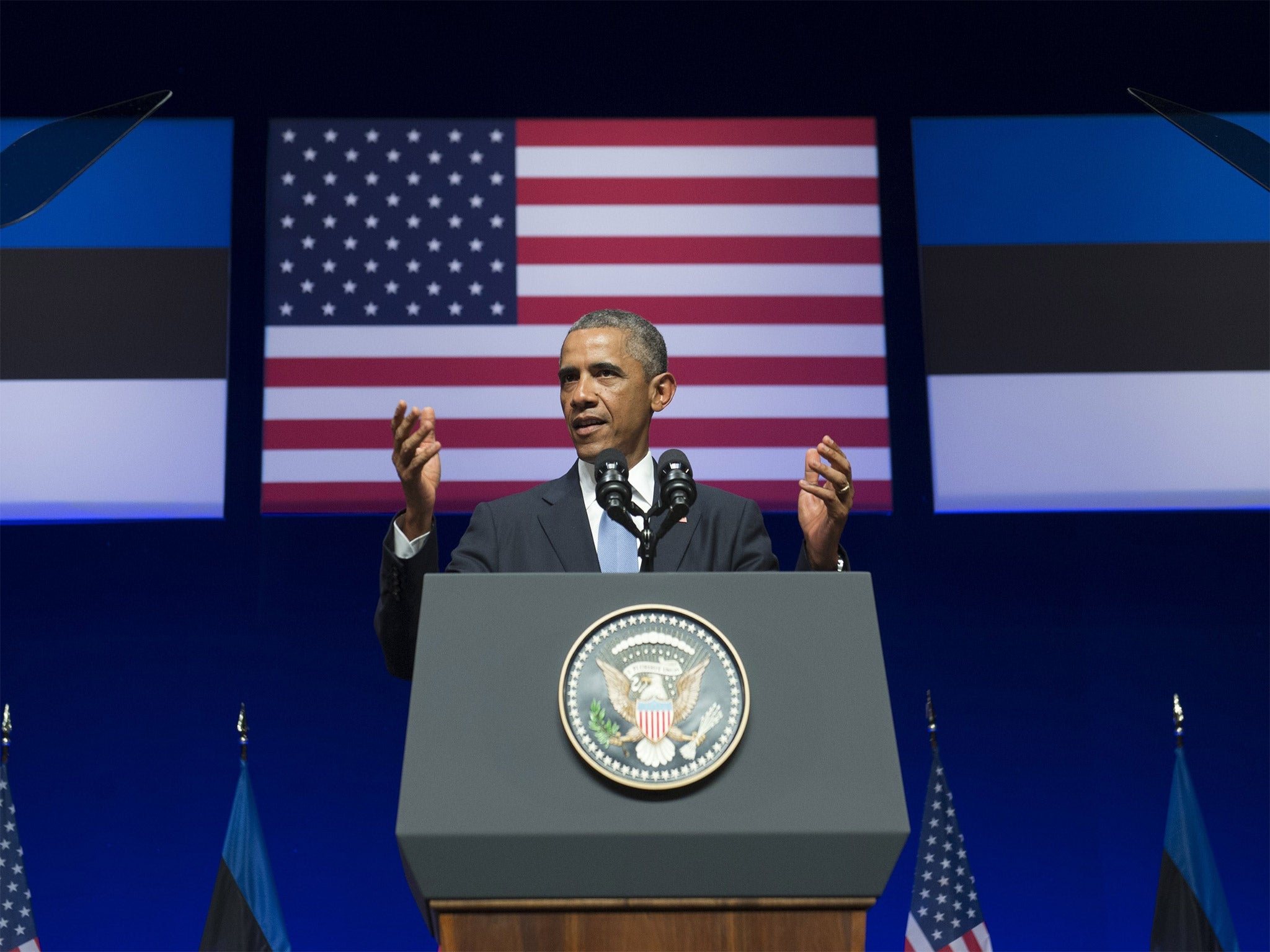President Obama: US troops will defend Baltic nations

Drawing on a broad sweep of history from the folly of Russian Tsars to Estonia under Soviet occupation, US President Barack Obama has taken aim at Moscow and sought to reassure Baltic nations that Nato and US troops would defend their territory.
Mr Obama was speaking a day ahead of the Nato summit in Wales, which is expected to reinforce the alliance’s commitment to Article 5 of its Washington Treaty – whereby an attack on one nation is an attack on all 28 – with the establishment of a rapid reaction force which could deploy within days.
Moscow’s annexation of Crimea and support of a separatist uprising in Ukraine has provoked fears in some Eastern European, Baltic and Scandinavian states that their borders may also one day be the target for Russia’s resurgent territorial ambitions.
President Obama made reference to Estonia’s own past as a Soviet state, and vowed that its independence would be defended. “I say to the people of Estonia and the people of Baltics, today we are bound by our treaty alliance... Article 5 is crystal clear,” he told an audience in the Estonian capital, Tallinn. “So if in such a moment you ever ask again who will come to help, you will know the answer: the Nato alliance, including the Armed Forces of the United States of America.”
His forceful words may not be enough to placate some nations, however. The Estonian and Polish leaders have asked for a permanent presence of Nato troops on their soil, but any such bases could violate a 1997 pact with Russia that was meant to reassure Moscow about post-Cold War borders.
“There will be a lot of talk about refocusing on core tasks in terms of defence of Europe,” said Andrew Wilson, a research fellow from the European Council on Foreign Relations think-tank.
“The trend towards reassurance and higher defence expenditure in Eastern Europe is quite an important reversal... but all the indications are that Nato will up supply of equipment without any real possibility of basing out there in Eastern Europe.”
Join our commenting forum
Join thought-provoking conversations, follow other Independent readers and see their replies
Comments